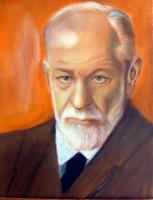How does immigration mourning affect us?
She assists a young woman who moved to Córdoba a few months ago to begin her university studies. "I came alone" she says, and she lists what was left in her hometown: her family, her friends, a love, her house, school, her teachers, her places acquaintances, the square where she walked and shared with friends, the town where she felt she had to leave to grow up, but that it was her town, her place.
When this young woman made the decision, she did it with great desire and enthusiasm, and yes, also with fear. And she wonders if because she felt fear, uncertainty and missing her affections and her familiar places, it was a bad decision to have come to study in another city.
When she arrived, she found herself in a new place, where everything is to know, explore and build, and from there, feeling traversed by these new emotions and sensations, she asks herself: “how do I do it? I will be able?".
- We recommend you read: "Mourning and sadness: how to deal with them?"
What is the immigration duel?
When we talk about mourning, it is usually associated with death, a loss
, what is no longer in reality, although this process does not always begin with the death of a loved one. In this clinical extract we see other things that can give rise to the grieving process and that have not necessarily ceased to exist.Mourning is a normal painful process that is presented to us as a way of learning to live with absence, which invites us to rebuild ourselves, to arm ourselves again from today, from what is, but also with what is no longer this. And being an affective process that occurs over time, the person goes through different stages and emotions. It will be at that time where the pain will subside until it almost disappears.
The type of mourning that is presented here is multiple, partial and recurring. These characteristics in mourning appear when a person leaves their place of residence to settle temporarily or permanently in another city or country.. Moving to a new place implies knowing its peculiarities: the rhythm and lifestyle, the customs and its internal codes, the language, the climate, the schedule, etc. they can change, and this requires the person to adapt to new ways of living, in order to feel part of this new place over time.

It is considered as a multiple duel because the life that the person had built in his life is left behind. place of origin, behind are their family, their friends, their habitual places, their customs, their routine. Since several things are left behind, it is more likely that one of them will be remembered and the person will connect with the absence. Absence that often becomes visible by the presence of the new that does exist, but that is a sign for the person of what he left behind.
That it is partial means that everything we leave behind continues to be. Unlike other duels that are presented as a total loss since we cannot rediscover what was lost, In this case, we can decide to meet again, since that is still there, it does not disappear forever. The recurring characteristic refers to the reactivation that occurs from the duel when coming back in contact with the origin. This can be caused by a visit to our place of origin, a call, or a new habitual place that contrasts with the previous one.
The feeling for a while expressed by those who go through this type of experience (migrating) is of “to be between”: the “old” and the “new”, the friends of “before” and those of “now”, the “old” house and the "new", etc. It is as if they were not from here (new place) but not from there either (old place). Mourning is natural and when it occurs in life situations such as a move and a change in life, it becomes necessary, since it helps us to adapt to reality without “lost things”. There are situations where the elaboration of the grieving process is difficult and this may be a reason to consult a psychology professional.


